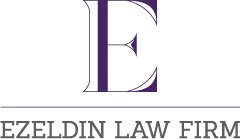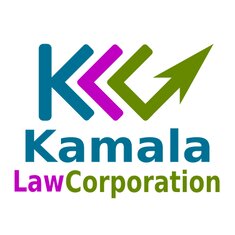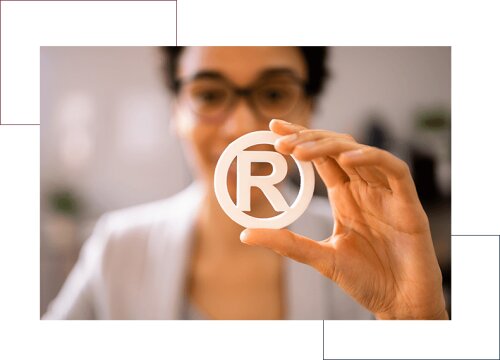Best Accounting & Auditing Lawyers in Illinois
Share your needs with us, get contacted by law firms.
Free. Takes 2 min.
Or refine your search by selecting a city:
List of the best lawyers in Illinois, United States
About Accounting & Auditing Law in Illinois, United States
Accounting and auditing law in Illinois regulates the professionals and practices involved in tracking, analyzing, and reporting financial transactions and records. These laws are designed to ensure transparency, accuracy, and legal compliance for individuals, businesses, and organizations operating within the state. The field covers a range of areas including bookkeeping, tax preparation, financial statement audits, internal controls, and compliance with state and federal regulations. Certified Public Accountants (CPAs) and accounting firms must adhere to strict standards of integrity and competence, guided by state boards and professional organizations.
Why You May Need a Lawyer
There are several situations where legal assistance is essential in accounting and auditing matters. You may require the help of a lawyer if you are facing allegations of financial misconduct such as fraud or embezzlement, or if you have concerns about errors made by accountants or auditors. A lawyer can also help when dealing with IRS or Illinois Department of Revenue investigations, disputes during audits, or when reviewing the legality of accounting practices in mergers, acquisitions, or dissolutions. Businesses and professionals may need advice on licensing, regulatory compliance, and liability issues, while individuals may require representation if accused of tax evasion or require assistance with forensic accounting investigations.
Local Laws Overview
Illinois accounting and auditing law is primarily governed by the Illinois Public Accounting Act. This statute defines the qualifications for becoming a CPA, the standards of professional conduct, and the disciplinary actions for violations. Illinois CPAs are regulated by the Illinois Department of Financial and Professional Regulation (IDFPR), which enforces licensing and practice requirements. Auditing standards align with both state-specific rules and federal guidelines, requiring rigorous internal controls and periodic external reviews for specific entities such as publicly traded companies, nonprofits, and government agencies. Privacy, record-keeping, and client confidentiality obligations are also strictly enforced in Illinois. Additionally, Illinois follows the American Institute of Certified Public Accountants (AICPA) Code of Professional Conduct to supplement its regulations.
Frequently Asked Questions
What qualifications are required to practice as a CPA in Illinois?
In Illinois, individuals must meet education requirements, pass the Uniform CPA Examination, complete relevant work experience, and obtain a state license from the IDFPR to practice as a Certified Public Accountant.
What is the Illinois Public Accounting Act?
The Illinois Public Accounting Act is a law that governs the licensing, regulation, and practice standards for CPAs and accounting firms operating in the state. It outlines disciplinary actions, codes of ethics, and continuing education requirements.
When is an independent audit required in Illinois?
Certain entities, such as publicly traded companies, large nonprofits, and government bodies, are required by state or federal law to undergo independent financial audits. Private companies may also need audits as stipulated by contracts or internal policies.
Can I sue my accountant for negligence?
Yes, you may have grounds for legal action if an accountant's negligence causes financial harm, such as filing incorrect tax returns or failing to detect fraud. Consult with an attorney experienced in professional liability for more information.
What happens if my business is audited by the Illinois Department of Revenue?
During a state tax audit, officials review your records for tax compliance. It is wise to seek legal counsel to ensure all documents are in order and to protect your rights throughout the process.
How do I report unethical conduct by a CPA in Illinois?
Complaints against a CPA can be filed with the Illinois Department of Financial and Professional Regulation. The state will investigate and take appropriate disciplinary action if necessary.
Are there special rules for nonprofit organizations regarding audits?
Yes, Illinois law may require nonprofits to undergo regular audits, especially if they receive state funding or exceed certain revenue thresholds. These audits ensure compliance with state and federal reporting standards.
Do accountants have a duty of confidentiality in Illinois?
Yes, accountants are required to keep client information confidential and only disclose it as permitted by law or with client consent.
What should I do if I discover an error in my filed financial statements?
If you find an error, promptly notify your accountant and consult with a lawyer to correct the issue and assess potential liabilities. Proactively addressing mistakes often reduces legal or regulatory consequences.
How can forensic accounting assist in legal matters?
Forensic accounting involves examining financial records for signs of fraud, embezzlement, or other irregularities. It is commonly used in litigation, divorce proceedings, and criminal investigations.
Additional Resources
If you need more information or support related to accounting and auditing issues in Illinois, consider reaching out to these organizations:
- Illinois Department of Financial and Professional Regulation (IDFPR)
- Illinois CPA Society
- American Institute of Certified Public Accountants (AICPA)
- Illinois Department of Revenue
- The United States Securities and Exchange Commission (SEC) for publicly traded companies
- Local Bar Associations for legal referrals
Next Steps
If you require legal assistance in accounting and auditing matters, begin by gathering all relevant documents such as contracts, correspondence, and financial records. Identify specific concerns or questions to discuss with a legal professional. Contact an attorney who specializes in accounting and auditing law in Illinois for a consultation. Many local and state bar associations offer lawyer referral services. Be sure to verify the credentials and experience of any professional you engage. Professional guidance can help protect your interests, ensure compliance, and address any issues that arise efficiently and effectively.
Lawzana helps you find the best lawyers and law firms in Illinois through a curated and pre-screened list of qualified legal professionals. Our platform offers rankings and detailed profiles of attorneys and law firms, allowing you to compare based on practice areas, including Accounting & Auditing, experience, and client feedback.
Each profile includes a description of the firm's areas of practice, client reviews, team members and partners, year of establishment, spoken languages, office locations, contact information, social media presence, and any published articles or resources. Most firms on our platform speak English and are experienced in both local and international legal matters.
Get a quote from top-rated law firms in Illinois, United States — quickly, securely, and without unnecessary hassle.
Disclaimer:
The information provided on this page is for general informational purposes only and does not constitute legal advice. While we strive to ensure the accuracy and relevance of the content, legal information may change over time, and interpretations of the law can vary. You should always consult with a qualified legal professional for advice specific to your situation.
We disclaim all liability for actions taken or not taken based on the content of this page. If you believe any information is incorrect or outdated, please contact us, and we will review and update it where appropriate.
Browse accounting & auditing law firms by city in Illinois
Refine your search by selecting a city.














